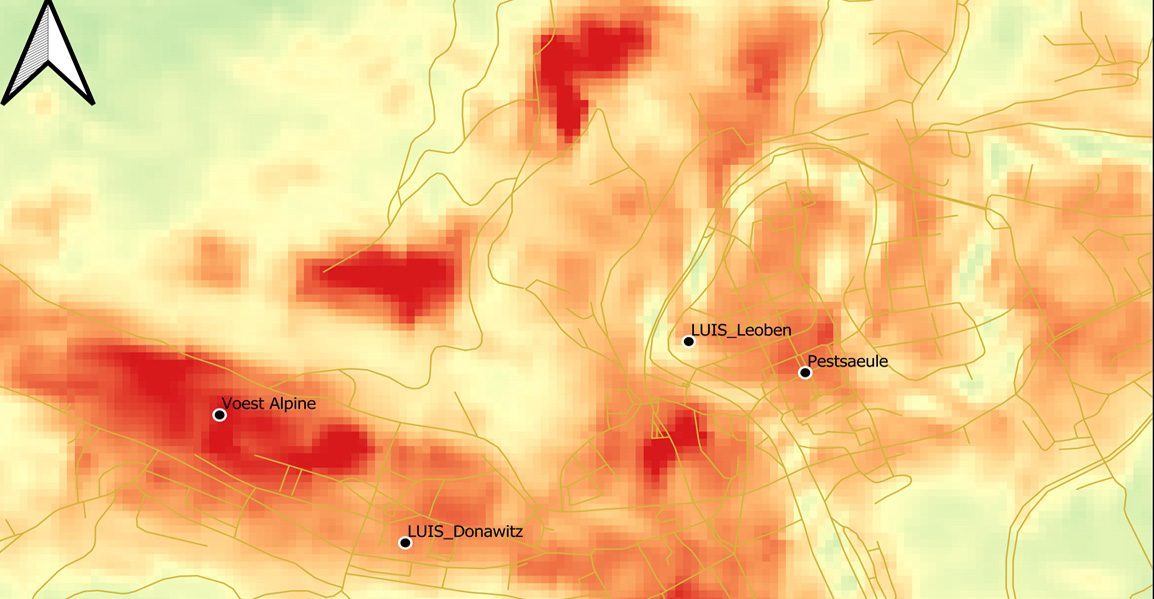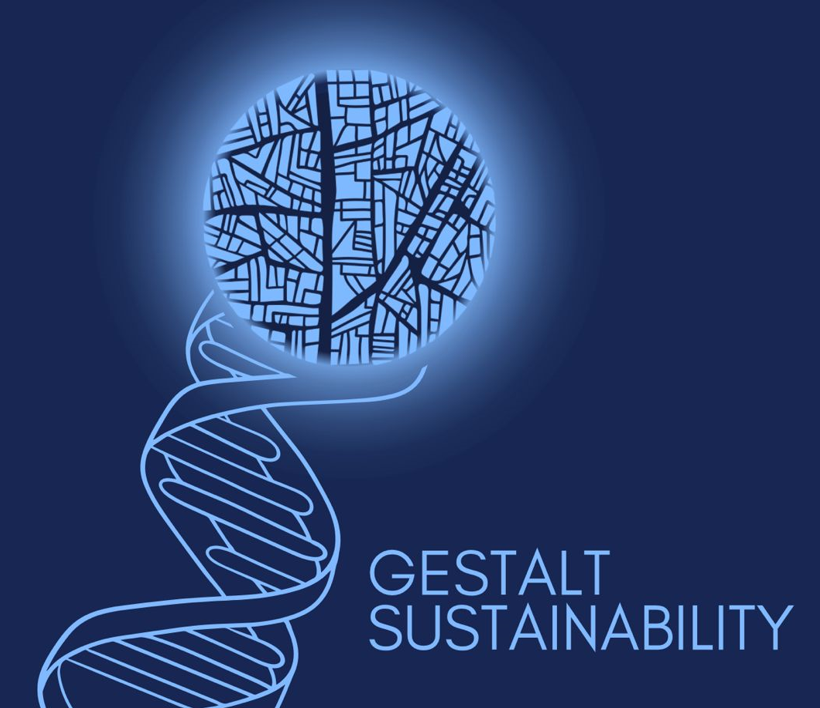- About us
- Research expertise
- DIGITAL – Institute for Digital Technologies
- MATERIALS – Institute for Sensorics, Photonics and Production Technologies
- ROBOTICS – Institute for Robotics and Flexible Production
- COREMED – Centre for Regenerative Medicine and Precision Medicine
- HEALTH – Institute for Biomedical Research and Technologies
- LIFE – Institute for Climate, Energy Systems and Society
- POLICIES – Institute for Economic, Social and Innovation Research
- Business areas
- Products and services
- Research infrastructure
- Participating interests
- Career
- News & events
- Publications
- Contact us
Climate-neutral and climate-resilient systems

Hitzeinseln in Leoben aus Fernerkundungsdaten, Credit: JOANNEUM RESEARCH
“One Health” highlights the importance of interdisciplinary collaboration to promote human and animal health, especially in old age. Our expertise centres on enabling evaluation of central processes (e.g. inflammation) that occur in similar ways in humans and animals.
By integrating satellite image data, geodata and climate data, we are able to record the effects of climate change in various action areas including forestry, agriculture and biodiversity. Our monitoring systems and products provide input data for AI-based forecasting models to analyse climate risks and initiate adaptation measures.
We play a major part in the development and comprehensive validation of Copernicus Land Monitoring Services. This work is carried out as part of EU research projects and on behalf of the European Environment Agency and the EU Joint Research Centre.
Our services include detection and risk assessment of damage in forestry and agriculture; remote sensing-based surveying of biomass for bioenergy use and carbon balancing; vegetation analyses for precision farming; and monitoring land use, biodiversity and nature conservation areas. DIG
Our portfolio of services includes the creation of hazard warning maps for mudslides and landslides and a remote sensor-based monitoring system for subsidence and landslides.
We develop detailed statistical models to quantify individual or company-specific risks using high-resolution location and activity data, as well as weather and climate data. Various financial ratios, such as the value at risk (VaR), are used to visualise these risks.
There are many ecological, social and economic advantages to the kinds of nature-based solutions that we develop: they mitigate climate change and help with adaptation (e.g. reducing the impact of heat islands in cities and containing flooding) and can even enhance citizens’ wellbeing.
The growing availability of data and advances in AI and data science methods are paving the way for increasingly accurate and more practical climate services. These serve to translate climate change insights into tools that are suitable for everyday use and integration into decision-making processes.
Many climate policy options effectively compound social inequality. Our tools deliver precise analysis and targeted levelling up measu res. We can support your region or administrative area with our analysis and concepts or in an advisory capacity when it comes to planning and implementing specific transformative steps and programmes.
Taking changes in process chains, emission processes and greenhouse effects over time into consideration is becoming increasingly important. In response, we are taking dynamic life cycle analysis a step further, supplemented by prospective methods, so that the full effectiveness of technical measures required for the changeover to climate-neutral production can be evaluated in detail.
With climate neutrality the overarching goal, we identify the contribution of future key technologies and increased sector coupling for specific transformation paths for the steel manufacturing industry. In each case, the remaining cumulative greenhouse gas budget is analysed to determine whether it is in a position to meet the requirements of the Paris Climate Agreement.
Researching technology and product diffusion with our User Experience Sustainability Assessment (UXSA) allows us to take a systematic look at customer satisfaction and the use of sustainable products and services to identify feedback on actual customer behaviour for companies.
The structural change that goes hand in hand with the transition to a climate-neutral economy calls for far-reaching changes for both companies and their employees. We analyse these changes, and the specific demand from companies for occupations and skills in particular, on the basis of job advertisements.
Environment and sustainability – products and services
Forecasting tool for the sustainable design of living spaces
Projekte aus dem Geschäftsfeld Environment and sustainability

Your contact!
Shaping the future, together
JOANNEUM RESEARCH provides innovation and technology services in the field of applied research. As a research company working on behalf of various federal provinces and regions in Austria, our expertise shapes the development of our modern society and economy – sustainably, and always with a focus on people. As a multidisciplinary team working in a flexible set-up that fosters innovation, we always live up to the highest social and scientific standards.

